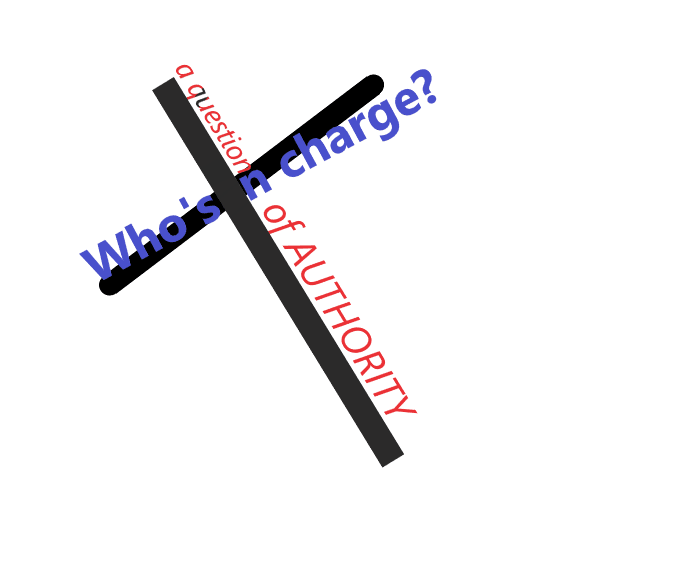Reporters of News
And this rumour of him went forth throughout all Judaea, and throughout all the region round about.
Gospel of Luke 7:17 – KJV
Sojourners become clarions of news to uninformed ears in new places from the places where they have witnessed life.
The ‘rumour‘ to which the Gospel-writer Luke refers (above) is Jesus’ raising a young man from his coffin along his own funeral procession in Nain in remote Galilee. Other English translations of the same Greek word [λόγος] use “report.”
When we return to John’s Gospel (Good News) we will encounter such reports again, some stories which veer from the truth.
Good News/Bad News: True or False?
The Disciples who traveled with Jesus from town to town reported the Good News of Jesus the Messiah of Israel to many who had not heard in places distant from the events they had witnessed. Reliable reports from other witnesses also reached the ears of thousands who had not yet seen Jesus in Person.
The four written NEWS accounts of JESUS CHRIST are not the only news of the Savior. Many reports are oral, even many first-hand stories from witnesses to Jesus’ many miraculous events recorded by the Apostles.
Picture the Apostles after Jesus’ death and resurrection as reporters and add to their number every saint of the Church who consequently believed their report of the Lord Jesus Christ, then you may realize why John and others had to address false reports of their time.
While reading the Gospels we discover many who reject the “Good News” of Jesus which challenges one or more of their earthly embraces of sin. Many reject God and refuse to acknowledge or let go of their sins.
Some will believe in anything in order to deny the Truth.
Roger Harned – talk of Jesus .com
All the REPORTERS of Jesus had to be taken at face value for their rumors (stories) of the Messiah. Those who did not witness an event had to ask themselves the same questions we would ask today.
- Is this even possible?
- Is their report TRUE or FALSE in some way?
- If it is true, is this GOOD NEWS or BAD NEWS for me?
- How should I react? (What must I do?)
- What is my response to this NEWS to others who have not heard?
Brief Vitae of the Good News Reporters
As mentioned previously in Witnesses to Jesus Risen! John and the Apostles continue to report their GOSPEL to others until the end of their lives and John writes to some who have witnessed even more miracles than he reports in his Gospel.
Briefly from our Gospel archives take a look at these dates of the reports.
- Jesus was crucified around the year AD 30
- John Mark’s Gospel – before AD 49; martyred AD 68
- Matthew’s Gospel – as early as AD 50, before martyrdom ~AD 60
- the physician Luke’s Gospel/Acts – AD 60-61, prior to the great persecution that began under Nero in A.D. 64; Luke likely martyred in AD 84
- John writes his Gospel to the churches after AD 85 [~AD 90-100]
- 2nd c. AD – many Church fathers, disciples of John, Peter & others, testify to the truth of their Gospels and oppose false reports by false teachers.
Countering False Reports
So this rumor spread to the brothers and sisters that this disciple would not die. Yet Jesus did not tell him that he would not die, but, “If I want him to remain until I come, what is that to you? ”
John 21:23 CSB
John 21:
Recall from John’s previous report [Witnesses to Jesus Risen! – Peter] of a third time they encountered Jesus after His resurrection:
5 So Jesus said to them, “Children, you do not have any fish to eat, do you?” .. 7 Therefore that disciple whom Jesus loved said to Peter, “It is the Lord!”
- Peter enthusiastically dove into the water and swam to meet Jesus on shore before the other Disciples came onshore in a boat filled with fish.
- Simon Peter and Jesus have a conversation about feeding His sheep and Simon hesitates in his answers to the Lord (our Shepherd).
- Jesus asks:
- “Simon, son of John, do you agapaō Me more than these?” then, “Simon, son of John, do you agapaō Me? and finally,
- “Simon, son of John, do you phileō Me?”
- Peter’s hesitates in answering Jesus call to agapaō and each time confirming that he loves Him (phileō differing slightly in meaning).
- The Lord commands him with some subtlety after each response:
- Tend My lambs.
- Shepherd My sheep.
- Tend My sheep.
And to the reader knowing that Peter has already died for his Lord, (Peter’s dearly departed friend) John offers an explanation.
17 .. Peter was hurt because He said to him the third time, “Do you love Me?” And he said to Him, “Lord, You know all things; You know that I love You..
Good News, Bad News
John gives the reader some ‘bad news,’ which is no longer NEWS to most and the ‘good news,’ which the other Apostles also witnessed. (Most of them had also died for their witness of the risen Christ Jesus!)

Rumor vs. TRUTH
- Who said it?
- What is the RUMOR?
- Where were they when it happened?
- When might this have taken place?
- Why would your NEWS source tell you?
- How does this impact you?
WHO DO YOU BELIEVE?
As the last surviving Apostle, John witnesses the Good News of Jesus Christ and His resurrection for decades!
What happens when a rumor creates a myth short of truth?
This would happen later when the Church tells stories not supported by Scripture.
When the saying (or story or myth) multiplies, then eventually encounters truth what most certainly will happen? The rumor is crushed and faith along with it (when the aging Apostle dies).
And remember, regardless of when or how the saying had started, it has already been around for a time since the original witness is some fifty years before John writes his Gospel truth.
Many disciples of The Way and saints of the church might easily elevate John (or for that matter, Simon Peter, other Apostles or even family of Jesus) to glory and worship due only the LORD.
John’s simple approach to false witness
The always esteemed and ever truthful Disciple does two things:
- John states the false witness (translated: saying, rumor, story)
- He refutes it by his own authoritative true witness.
WHO DO YOU BELIEVE? It’s as simple as that.
The incident in question involves what JESUS said to Simon Peter. Only six other Disciples including John witness it first hand. So John states:
- 21:23 Then went this saying abroad among the brethren, that that disciple should not die:
- yet Jesus said not unto him, He shall not die;
- (FALSE rumor – John categorically states: – Jesus said NOT)
- but,
- (here is the truth I witnessed, says John)
- [Jesus said ..],
- If I will that he tarry till I come, what is that to thee? [KJV] or
- “If I want him to remain until I come, what is that to you?” – NASB
The Disciple by quoting Jesus refutes the rumor of John’s alleged immortality told in this story circulating among early Christians.
John squashes this rumor before it can multiply into false teaching which will cause us to doubt the ‘Gospel Truth.’
His own witness, true to facts unknown through rumor, states what happened (decades ago):
- 20 Peter turned around and saw the disciple whom Jesus loved following them—the one who also had leaned back on His chest at the supper and said, “Lord, who is the one who is betraying You?”
- So Peter, upon seeing him, said to Jesus, “Lord, and what about this man?”
- Jesus said to him, “If I want him to remain until I come, what is that to you? You follow Me!”
- Peter turned around, John was following him and Jesus.
- Peter asked the Lord about John, because Jesus had just told Peter:
18b “.. when you grow old, you will stretch out your hands and someone else will put your belt on you, and bring you where you do not want to go.”
- John tells the reader, who likely knows of Peter’s crucifixion, why Jesus said this.
- After having refuted the rumor with the truth, John puts his seal on the whole truth of restating the ‘story.’
This is the disciple who is testifying about these things and wrote these things, and we know that his testimony is true.
John 21:24 NASB

John’s closing is comparable to Paul writing, “I sign this in my own hand.” At stake is the Authority & Truth of the Lord Jesus
Rather than adding questions on this section of John, I leave you to question Truth vs. fiction. Please click PG 2

Leave a Reply